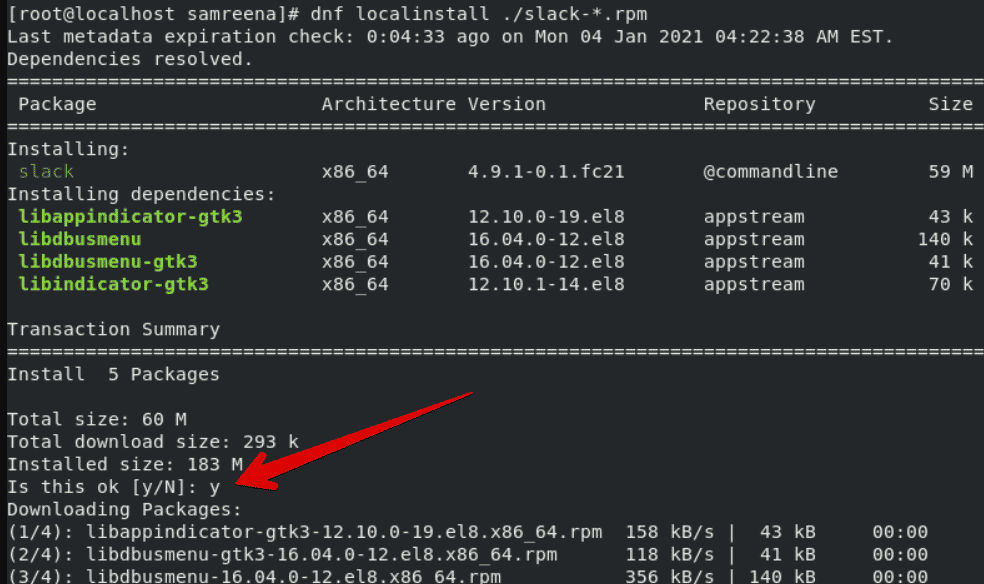

You will install packages that came with the distribution in the CD-ROMs, or that you downloaded from an FTP site (I suggest you create a downloads directory to place new files there).

It saves time and potential compiling errors. For example, you can either download the source code for Apache (a Web Server), uncompress, compile, and install it in your machine, or you can use the apache RPM file that comes with the distribution, or yet download the latest RPM version from the Red Hat ftp site, and just install the RPM file. A package, or RPM file, will install a given application and create the necessary directories to run it. Red Hat has simplified the installation of software in Linux by creating the Red Hat Package Manager (RPM). Installing RPM packages Installing RPM packages


 0 kommentar(er)
0 kommentar(er)
